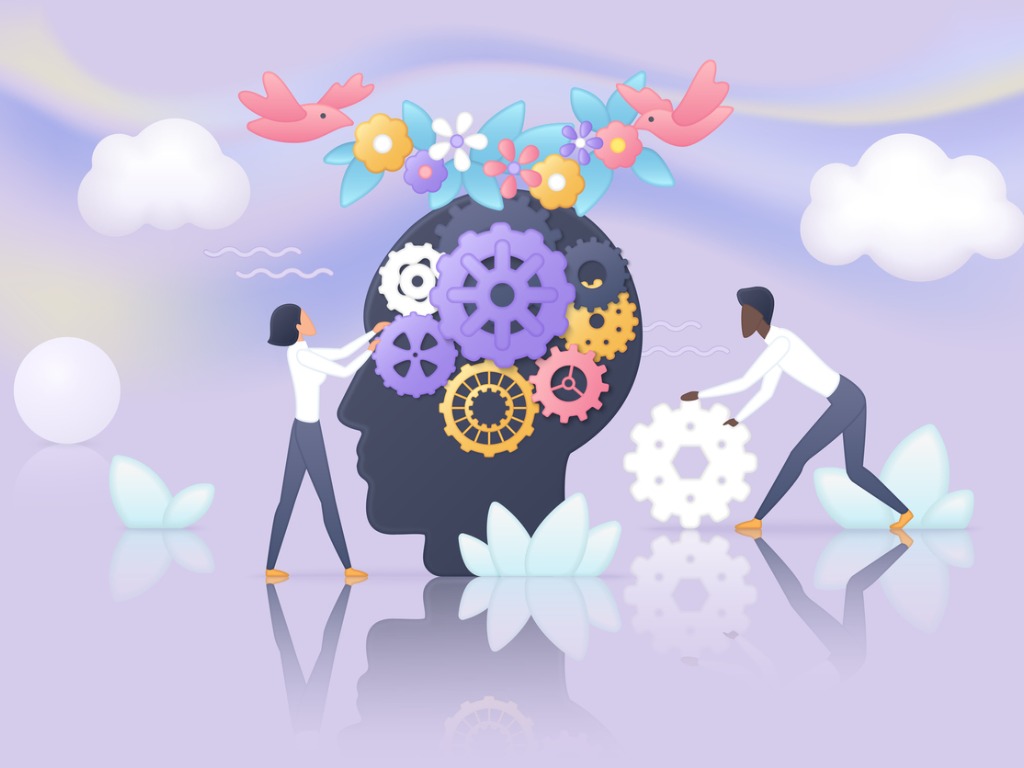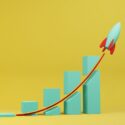
How has hyper-connectivity affected our productivity, thinking, and output? asks Tamie Vermaak
There is more to life than increasing its speed
Mahatma Gandhi
The COVID-19 pandemic taught us that we can work from anywhere as long as we have good internet speed and a manager’s trust. This hybrid approach, fluctuating between working from home and the office, came at a cost. We are more connected and plugged in than ever before. Those clear lines between “at work” and “at home” are now blurrier than ever, and we as Assistants find it even harder to truly disconnect from our office responsibilities. During the pandemic, our attention was so focused on getting the job done that we still operate in a mode of hyper-connectedness, afraid that if we draw our boundaries we may drop the standard we set during COVID. But how has hyper-connectivity affected our productivity, thinking, and output?
The World Around Us Is Shaped by What We Give Attention To
When was the last time you truly stopped and looked at what you’re focusing on, instead of ticking off multiple to-do lists or reacting to tasks given? Thinking deeply and being productive are often thought of as opposite ends of the spectrum. Productivity is not about working more or sweating harder; it is not about spending long hours at your desk or making sacrifices. The difference between merely being busy and being genuinely productive is about taking control of how we think and as a result making better choices, instead of simply reacting to constant demands. The most productive people create habits that force them to think and be mindful on a regular basis (Duhigg, 2021).
We know from research how important it is for our children to be bored. During this time of boredom, they become more creative and use imaginative play. Futurists forecast that empathy and creativity will be the two most essential skills in the new world (Huffington, 2021). I can recall growing up and spending seemingly empty hours under a tree playing with my Barbies or inspecting ants and the scribbly rows they march in. Research suggests the tendency to experience boredom may be linked to creativity and curiosity if the individual can find ways to overcome their “boredom” and find stillness (Hunter, 2016). Hence, we need to learn how to be still, think and use this time positively to narrate and design better lives for ourselves. But first, we need to be comfortable in this space of stillness.
A Wave of Mindfulness
The COVID-19 pandemic had a profound adverse effect on the global economy, with a sharp rise in unemployment and a fall in output. Many people were forced to stop their constant busyness and pause for a moment, reflecting on their lives. The result of this was people who changed careers or contemplated their relationships. The pandemic gave birth to new business ventures and a plethora of creative solutions for a better work-life balance for employees. It has even spilt over into organisations, and some of the more progressive organisations became more people-centric. In some instances, this negative experience spurred positive change for organisations and individuals.
A wave of focus on “mindfulness” was born out of this quiet time – humanity is searching for meaning now more than ever. If we look at history, there is always growth and change after big world events, and the main reason is that it forces people to stop and think about where they are and where they would like to be, and how to get there (Brown, 2021). Can we incorporate these pauses into our personal lives to benefit from the same process? We are a few years down the line from the pandemic already and the question is: Have we incorporated the lessons learned during that time?
Responding to Demand
Keep in mind that success is not a form of self-love or nourishment. It is great to achieve our goals, but only if it truly nourishes us, as often we just move the goalposts once a goal has been achieved. The secret is to stop, acknowledge and reflect. The things we keep chasing and the lists we tick off give us a sense of success, but that does not always mean we are fulfilled. We fall into a trap of believing that this busyness will be cured by streamlining our to-do list, but the opposite is true and it’s a never-ending cycle. We end up feeling stuck, and this is a clear indication that we are not working optimally. It may only be after a period of disconnect that we find solutions to these mindset cycles.
Deep self-care is born out of those things that nourish us. And this is different for each person. Nourishment to me is taking time to reflect, to walk, to sit and daydream – it could happen while I am painting, hiking or doing something simple like staring out the window while drinking a good cup of coffee, allowing my mind to wander. I encourage you to take time for a bit of introspection and to be curious about the path you are on. We can think of this period of inactivity as the incubation period for future sparks of ingenuity.
Assistants especially need to find a balance between being busy and constantly connected and creating space to think, reflect and contemplate. It is not often expected of the Assistant to stop and contemplate; we are natural task managers and to-do list “tickers”. The journalist Charles Duhigg explains brilliantly in his book The Power of Habit (2021) that we fall into a cognitive tunnel of reaction. We become fixated on how things should be and have always been done and lose track of the fact that it’s not the optimal way to do things. A cognitive tunnel is when our brain feels overwhelmed and its instinct is to focus on the most observable stimuli, such as the next thing on your to-do list. You are purely in a state of reaction because your brain feels overwhelmed. It forces you to respond immediately.
Instead of always responding, we need to start thinking. You need to come up with a new narrative to feel in control because if you feel in control, you will make better choices rather than just responding.
Thinking Deeply
Responding to demand and reacting is a great threat to thinking deeply, especially now with constant demands via texts, emails or bosses handing out tasks. We can fill our day by simply responding to other people. And there is a feeling of completeness and success in doing so. You feel like you have accomplished something by ticking off those lists and emptying your inbox. And yet all you did was respond.
Researchers note that companies have turned to mindfulness and meditation practices to help their employees tap into their creative potential. Companies such as Pixar, Google and Facebook have made disconnect time, or contemplative practices, key aspects of their way of working. The objective is to increase their employees’ self-awareness, self-management and creativity. They want them to work smarter (De Vries, 2014). To go even further, countries such as France have introduced a law stating that employees have the right to disconnect from work during their time off.
Being busy can act as a mechanism to ward off feelings and keep anxiety at bay. Those Sunday afternoon blues may often rear their head after a tiny bit of empty time in which we reflect, and as a result, feelings start to bubble up. Before we know it, we suppress them and head back into a busy week, instead of considering a solution to those Sunday blues.
To quote Manfred F. R. Kets de Vries, a professor of leadership development and organizational change at INSEAD, “The answers might reveal that we have been so concerned with an idea of what we ought to be that we have failed to take into account the things that make us who we really are. We may realize that if we just go forward blindly, creating more unintended consequences, in the end, we may fail to achieve anything substantial”.
How do we build practices for ourselves to not be purely responsive?
Be Still and Unplug
The solution is to build cognitive routines into our life that make deep thinking easier. This is some type of practice that you need to create daily for yourself that forms a habit in your life. This looks different for each of us and can include activities such as asking your partner to be a soundboard in the evenings, journaling, spiritual practice, handcrafts, meditation, exercise or cooking. Taking a break from technology could be hugely beneficial. (We know scrolling through endless social media feeds does not make us more productive; however, we still do this as a way to disconnect from a hard day at work – we take the easy route for a quick dopamine hit.) The goal should be to find a route into that quiet space in our head, and often these types of activities can be that. When you get into a state of flow with these activities, your mind can switch off, thus enabling the mind to pause and reflect.
Ann Hiatt, former Executive Business Partner to Jeff Bezos, mentioned in a recent newsletter that she had to schedule regular “thinking retreats” for Jeff. During this block of time, sometimes up to a week, he would lock himself in with only his diary and a pen. During this time he could clear his headspace, his mind, by removing unwanted stimuli. To quote Ann: “Those things that your brain has been working on in the background suddenly come to the forefront. These great ideas come from literally doing nothing”. I see the same for my boss – long cycle trips that are as important as those business commitments. Are we as Assistants giving ourselves the space to incorporate the same?
Creating Meaningful Connections
We need meaningful contact with people, either friends or family, to feel fully alive. And truly switching off from work and making time for these connections is crucial. Our inner circle needs our interaction, engagement and full attention. The erosion of our social values is a major threat to humanity at the moment. Assistants are often “yes people” – here I speak for myself – and find it hard to say no. Being able to say no and maintaining your private life is critical to switching off from work and your boss. Keep in mind that every “yes” to your boss is a “no” to your family and yourself. It is our own responsibility to keep a good and healthy balance. In essence, we are honouring our family and ourselves by saying “no”, and this shows much more grit and inner strength than being a constant “yes person”. These periods of meaningful contact with those close to us are another great way to disconnect from a responsive state into a more fluid state of just being.
It is in this time of contemplation that we let creativity in and find new ways to grow, either by streamlining existing procedures or by realising that what we are doing serves no purpose in the bigger picture of our work. Reflecting and contemplating gives us the tools to work smarter and not harder. And remember, being 100% human at work is our superpower: no AI Assistant can be creative, or show empathy, in ways that we can. But it’s our responsibility to nurture ourselves.
My wish for Assistants is that we all create some space for disconnection during the upcoming festive season. Be mindful not to jump into another set of to-do lists and busyness. Honour your time to disconnect. Let the flurry of your inner snow globe settle, creating a space in your mind to really think deeply about what brings you calm, joy and fulfilment. If we know these things and incorporate them into our lives, we are happier, healthier and more productive, ultimately leading fulfilled, and not just “busy”, lives.
References
Brown, B. (2021). Podcast: Dare to Lead: Brene with Charles Duhigg on Habits and Productivity. Spotify.
De Vries, M.F.R.K. (2014). Doing Nothing and Nothing to Do: The Hidden Value of Empty Time and Boredom. INSEAD Working Paper No. 2014/37/EFE
Duhigg, C. (2013). The Power of Habit: Why we do what we do and how to change. Random House Books. The United Kingdom.
Hiatt, A. (2021). Newsletter: Creating Magical Moments.
Hunter, J. (2016). Personality and Boredom Proneness in the Prediction of Creativity and Curiosity. Thinking Skills and Creativity. Volume 22, Pages 48–57. Science Direct.












